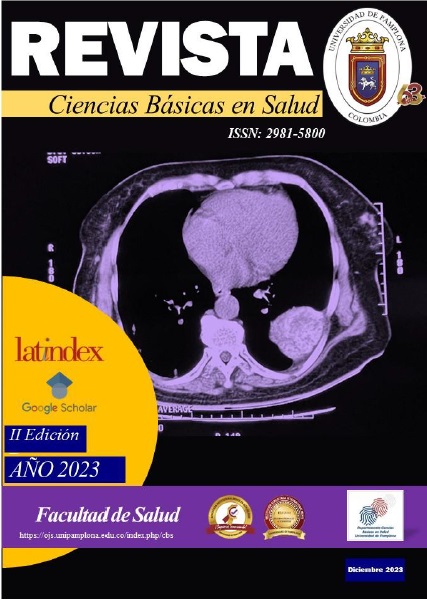INTERNAL HERNIA ASSOCIATED WITH INTESTINAL MALROTATION IN ADULTS: A CASE REPORT
DOI:
https://doi.org/10.24054/cbs.v1i2.2632Keywords:
Internal hernia, intestinal obstruction, abdominal pain, intestinal malrotation, congenital abnormalitiesAbstract
Introduction: Internal hernias are defined as visceral protrusions through the peritoneum or mesentery that remain inside the abdominal cavity, due to acquired or congenital causes such as intestinal malrotation. This type of pathology represents a great challenge for the medical professional because of its difficult diagnosis, due to its presentation of non-specific symptoms, which in turn increases the risk of complications when abdominal pain is considered as the diagnosis. Report of case: We present the clinical case of a 27-year-old patient who was admitted to the emergency department with a clinical picture of 7 hours of evolution consisting of epigastric pain associated with multiple postprandial emetic episodes and nausea. The patient underwent surgical intervention, following imaging suggesting internal hernia that showed intestinal malrotation of the cecum, appendix and folded transverse colon in the left hemiabdomen with left ileocecal valve. The surgery comprised lysis of peritoneal adhesions, appendectomy and enterorrhaphy, with displacement of intestinal contents by laparotomy. Discussion: Internal hernias are one of the rarest causes of intestinal obstruction; however, it is necessary to consider this pathology in the presence of abdominal pain due to its high risk of complications if not treated promptly, and because the treatment lies in resolving its obstruction through surgery. Conclusions: Consideration of an internal hernia diagnosis in the event of abdominal pain allows rapid and timely action to reduce morbidity and mortality.
Downloads
Downloads
Published
Versions
- 2023-12-20 (2)
- 2023-11-30 (1)







